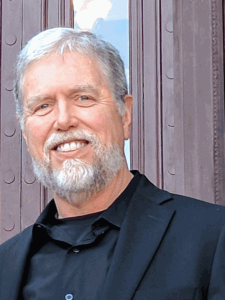WELCOME
Creative Insight Community Development is a consulting group with offices in Texas, Arizona, California, Pennsylvania, and Australia. We specialize in creative solutions to economic and community development challenges and opportunities. We help communities develop real solutions for real people using state-of-the-art ideas, research, and expertise grounded in community engagement. Although they are often overlooked, we also believe that rural communities and distressed small
town economies deserve just as much support and attention as large metropolitan areas.
ARTS-BASED DEVELOPMENT: BUILDING CREATIVE COMMUNITIES
Arts and culture can be powerful community assets. Arts-based economic and community development is often cited as a means to improve quality of life for communities while attracting jobs, tourists, and new residents. The arts sector is also a competitive tool that can generate income and tax revenues while strengthening the regional economy, education, civic engagement, and youth development. Arts centers, arts incubators, arts and music festivals, and a variety of other combined strategies can be used to support and build local arts economies, but they should also be self-supporting whenever possible. While there are a lot of trendy ideas and jargon going around, how do you figure out what will work best in your community?
BUSINESS INCUBATION and entrepreneurship:
BUILDING ENTREPRENEURIAL COMMUNITIES
Many business incubators have failed since they started to become trendy in the 1980s, mostly as a result of poor planning, unrealistic goals, inexperienced management, or a lack of community support. However, successful incubator models and best practices have been demonstrated since 1959, although they have to be customized for different communities. Retaining incubated businesses is also important, but often poorly managed. Whether it’s arts incubators or technology incubators, our approach uses lessons learned from best practices, current research, and our own direct experience in building, running, and advising incubator programs.
FOOD HUBS and cooperatives: BUILDING FOOD COMMUNITIES
Food hubs and co-ops often run on thin margins and can take a long time to become self-sustaining if they don’t fail before then. One solution is to combine food hub aggregations and marketing strategies with related but higher-margin services, such as commercial kitchens for value-added food processing, contract processing, rental, classes, and incubation of food entrepreneur businesses. Another approach is to combine the co-op with a connected restaurant, food delivery services for seniors and children, and other strategies that can also draw federal or state funds to help these programs get started. Food networks and collaborations can also be built up around these programs for stronger community development.
MAKERSPACES: BUILDING NEW MANUFACTURING BUSINESSES
“Makerspaces” are shared community facilities for the public to make things with high-end manufacturing equipment and other tools for multiple crafts. Laser cutters, 3-D printers, and computerized machine tools are often provided along with training in how to use them. These spaces are typically used by both professional craftspeople and hobbyists, and the interaction of these users creates a supportive environment for learning, prototyping, experimentation, collaboration, and community building. For communities interested in expanding their options for economic development, creation and support of a makerspace provides the opportunity to launch new manufacturing businesses started by “maker-entrepreneurs” while upgrading local workforce skills and building community.
TESTIMONIALS
Through the Innovation Hub (iHub) Initiative, the Governor’s Office of Economic Development (GoED) has afforded research clusters, start-up companies, local government entities, business groups, venture capitalists, and non-profit economic development organizations an unprecedented opportunity to partner with the State to facilitate the emergence of new technologies and new markets. Your advice in planning the iHub program was invaluable. Your role of evaluating proposals from aspiring regional partnerships was also integral to this initiative and I thank you for your support. Your dedication to the promotion of innovation is recognized and your support of GoED is greatly appreciated. — Governor Arnold Schwarzenegger, State of California
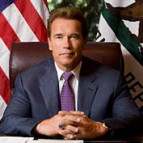
Governor arnold schwarzenegger
In direct response to the collapsing economy and the State of California’s need to rapidly develop new business opportunities and economic diversification, the goal of i-GATE was to increase entrepreneurship and more fully develop the startup and innovation ecosystem in the East Bay region of San Francisco. Due to our proposal, we became one of the inaugural six regional innovation clusters designated by the State of California in 2010. The primary author of this proposal, and much of the initial project aspects, were developed by Bruce, including establishing a startup incubator, a makerspace, an academic advisory board (alliance), and entrepreneurship programs.
I would unilaterally hire Bruce and his team for research, assessments, proposals, strategic planning, and implementation in the areas of economic and community development, innovation cluster development, makerspaces for small manufacturers and startups, entrepreneurship, small business incubators, investment and financing for innovation ecosystems, civic systems for the arts, food hubs, and amenities sub-sectors. If I could do it all over again, I can think of no better co-founder or partner to accomplish the goals we set out to achieve.
— Dr. Rob White, former Economic Development Director, City of Livermore, California
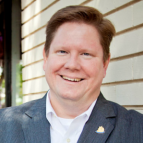
Dr. Rob White
As CEO of Dhahran Techno Valley Company, managing one of the world’s largest energy based
R&D science parks, I have direct experience in the complexities of Science and Technology
Park Development. In the earliest stages of inception, through planning and design and then
Implementation phase, there is often a wide variance of opinion on executing the vision. This
is driven by the diverse collection of stakeholders representing political priorities, business
requirements, institutional funding objectives and a host of other special interests.
Having worked with Bruce at Sandia National Laboratories, I know that the Livermore Valley
Open Campus project needed to satisfy requirements and conditions of the Department of
Energy and a diverse collection of other stakeholders. In this project, the goals and
objectives of DOE and the multiple stakeholders were difficult to align. Bruce worked
tirelessly and effectively with the management of two national laboratories, local and city
officials, and regional partners to build a powerful strategic plan that served the entire
community. This strategic plan focused on creating programs and spaces designed for people to
collaborate, innovate and create. Included in Bruce’s deliverable were relevant case studies
and evidence supporting this balanced, interactive design.
Bruce’s successful record in developing winning proposals is testimony to his ability to
understand the broad vision while satisfying a diverse set of public and private sector
stakeholders. Bruce’s contributions are an essential component to any serious Science &
Technology Park development effort and I look forward to working with him on future projects.
— Craig Smith, CEO
Dhahran Valley Technology Development Company (world’s largest energy-oriented research park)
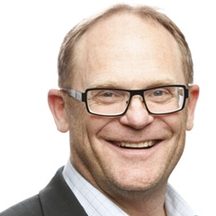
craig sMITH
ABOUT US
Knowledge is Power.
You can hire that power.
Our experienced, progressive consultants apply state-of-the art research, methods, and tools to real-world projects that combine economic development with community development. With almost 100 years of combined experience in creating community solutions, we develop actionable plans that get results.
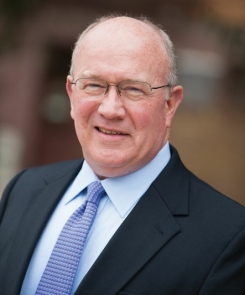
Ted
Alter, PhD
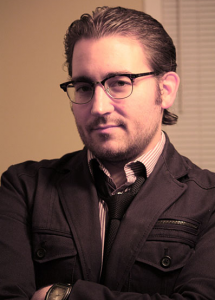
Michael Fortunato, PhD
